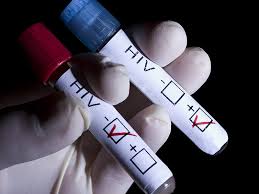HIV Laws and Domestic Violence: Join DVN April 12 for HIV Advocacy Day
Wednesday, April 12, concerned Hoosiers will gather at the Statehouse for HIV Advocacy Day. Hosted by The HIV Modernization Movement and Brothers United, participants will get an update on the science of treatment and prevention of HIV, needle exchange programs, and HIV criminal laws.
HIV Criminalization in Indiana
Dozens of US states have laws on the books criminalizing HIV status. In Indiana, a person with HIV has a “duty to warn,” alerting sexual partners of their HIV diagnosis before sexual activity. This holds true whether or not the partners are using protection, and even if the person with HIV has an undetectable viral load, owing to compliance with their medication. This applies to past sexual partners as well, requiring a newly diagnosed person to get in contact with former partners and let them know they should seek testing. The duty to warn transcends patient-healthcare provider confidentiality, enabling the provider to notify “persons at risk.” It is also against the law for an person with HIV to deliberately allow their bodily fluids to come into contact with another person. If the person the bodily fluid contacts is a public safety official, the sentence the HIV positive person receives may be enhanced.
Duty to warn and domestic violence
In our work, we have heard of domestic violence victims staying with their abusers for fear of their HIV status being outed. HIV still comes with much shame and stigma, and it is the patient’s right to keep that information from friends, family & coworkers who are at no risk of contracting the virus. Abusive partners have also used their partner’s HIV status against them in court proceedings. If the victim decides to leave the abuser, the abuser can take the victim to court for exposing them to HIV during their relationship. It is up to the victim to prove the abuser was warned. Not many people keep a record of these intimate conversations with their partners. And, because healthcare providers may also break confidentiality with their patients to notify persons they believe to be at risk, abusive partners may receive information about their victims they can use against them.
Sexual assault victims can be charged for their own assault.
If a person living with HIV is raped, their rapist can technically use these laws to cast themselves as the victim. If the person assaulted did not disclose that they have HIV before the assault took place, they are not compliant with their duty to warn.
Mental illness can cause erratic behavior.
The Indiana law states that an HIV positive person who places their bodily fluids on another person has committed a felony. This includes all bodily fluids, even urine, saliva, sweat, and tears–fluids that do not transmit the virus. In my days as a case manager, I had a client who would spit when afraid. When approached by a police officer, he spit on the officer. Due to his HIV status, he was charged for spitting, and received an additional charge because the saliva landed on an officer.
 HIV criminalization discourages people to seek HIV testing.
HIV criminalization discourages people to seek HIV testing.
These laws apply to people who know they have HIV. If a person does not know they have the virus, they don’t have a duty to tell others about it. Working in HIV/STI testing centers in my early career, I had clients tell me they would be tested for other STIs, but not HIV for this very reason. They did not want to be recorded by the health department as testing positive, or face the potential of a criminal case.
These laws are public health measures, meant to keep people safe from HIV infection. Despite rapid medical advancements in the treatment of HIV, it is still a virus with no cure, requiring lifelong management that can become AIDS if left untreated. We should be doing all we can to protect people from acquiring it. But, these laws do not take into account the medical advances in HIV research, or the nuances of those affected by HIV. The laws do not address to root problems–access to HIV testing, treatment, and the very real fear of violence when disclosing HIV infection. The laws target some of the most vulnerable among us, and threaten to add a felony conviction to their challenges.
Want to get involved? Join DVN at the Statehouse Wednesday, April 12 at 10AM. Sign up here so the organizers know how many to expect!
